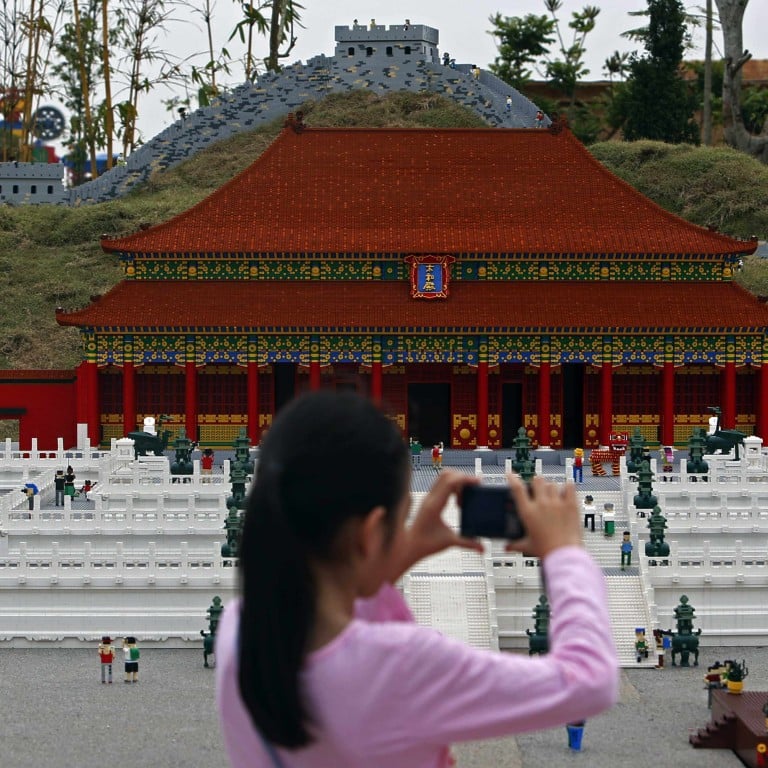
Beijing Legoland to help China’s capital spur economy as construction set to begin this year
- A Legoland park in China’s capital has been discussed for years, and after falling by the wayside in 2022, the city says ground will finally be broken in 2023
- Dean of Institute for Theme Park Studies explains how China still remains a huge market for theme park consumption
Beijing really wants to build with Lego. A theme park, that is. And if construction starts this year as expected, it would be one of the capital city’s major economy-boosting projects.
When recently unveiling its annual economic plan for 2023, the city said it “seeks to initiate the construction of Legoland” after it failed to get under way last year, when Beijing had similarly listed it among nine priority projects that were expected to break ground in 2022.
And a leading theme-park expert in China says the announcement reflects how important the country remains to global developers who are keen to cash in on the country’s post-Covid recovery, with an eye on the future.
In fact, the planned 304,000-square-metre (75-acre) resort is one of four Legoland parks that UK-based Merlin Entertainments has planned for China. But even though the possibility of a Beijing Legoland has been discussed for years, few details have been confirmed, including its possible completion date.
Merlin, which has opened several Legoland parks and Legoland Discovery Centres around the world through its partnership with the world’s No 1 toymaker by revenue, is also building the world’s largest Legoland theme park in Shenzhen, across the border from Hong Kong.
Merlin is also building a Legoland in Meishan, Sichuan. The fourth park will be located in Shanghai.
But construction faced delays during the pandemic and was expected to resume this year with China having abandoned its disruptive zero-Covid policy, according to Lin Huanjie, dean of the Institute for Theme Park Studies in China, who also took part in the project-quality review for Legoland Shenzhen.
Lego to build on massive store expansion programme in China
Even though Beijing did not elaborate on details of the planned park in China’s capital, experts say it could eventually draw large crowds as consumption recovers to pre-pandemic levels in the next few years.
The Legoland parks will follow in the footsteps of Universal Studios in Beijing and the Shanghai Disney Resort.
As of Monday, Beijing’s total tourism revenue in the city during the Spring Festival holiday rose more than 50 per cent from last year to 7.46 billion yuan, with Universal Studios traffic up 90 per cent, year on year, and with 73.2 per cent of guests being out-of-town visitors. Hotel bookings in Beijing also increased by nearly 40 per cent during the recently ended holiday, year on year, according to data obtained by mainland media outlet Beijing Business Today.
Prioritising economic recovery and consumption this year, local governments across China have unveiled big construction plans, with initiatives to attract foreign investment to counter unemployment pressure and bolster the Covid-battered economic growth.
China still remains a huge market for theme park consumption, and this market is not saturated
Lin said that the potential of theme parks to boost local economies is significant, as these tend to provide a big boost to the surrounding restaurants, hotels, transport and employment, in addition to park income. They can also help cities develop their brand and woo foreign investors.
“It will take about two years for the tourism market to return to pre-pandemic levels,” Lin said. “This will benefit Legoland because it coincides with their opening time frames in China, and I believe the robust traffic will give the Merlin group more confidence in the Chinese market by then.
“Paramount and Warner Brothers in the US, Puy du Fou in France, and Bollywood in India all want to enter the Chinese market. This means that China still remains a huge market for theme park consumption, and this market is not saturated.”
Merlin did not reply to an emailed request for comment this week.
Could China’s top theme parks offer a ‘model’ for tourism development?
Legoland in Shenzhen is expected to lure more than 2 million tourists in its first year, pull in 20 million yuan worth of tax revenue in the first five years, and create more than 3,000 jobs, according to a government report in 2021.
“The design of Legoland in Shanghai is in its final stages, the project in Shenzhen is also moving very fast, and we expect to welcome the opening of these two parks by 2025,” Lin said.
However, he added Legoland in Sichuan is still facing work delays due to funding issues.
Within three years of Disneyland’s entry into Shanghai, the resort’s fixed-asset investment contributed an annual average of 0.13 per cent of the city’s gross domestic production (GDP), and the park’s consumption contributed an annual average of 0.21 per cent to the city’s GDP, according to a report by the China Tourism Academy in 2021.


